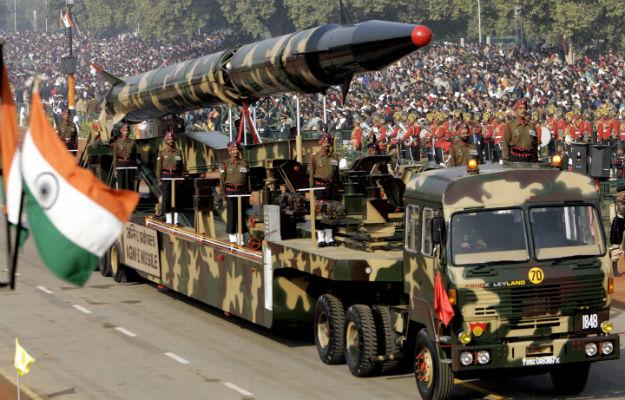Newspaper Article 29/12/2022
The China-Pakistan Economic Corridor (CPEC) is a transformative project, which holds enormous potential for transforming the lives of the people of Pakistan and region. The most important development project undertaken in Balochistan is the Gwadar Port, which was operationalized on 14 November 2016, marking the historic launch of trade activity through the CPEC. Development of this port bears fruitful consequences for Balochistan, the most underdeveloped province of Pakistan. It is creating new opportunities in the province as well as in Pakistan and will be a game changer for them, besides attracting a number of projects like road links, industrial parks, power projects, the rail links and fibre optics, something that will directly benefit all people of the country.
The port and the province are at the center of the CPEC project. Various energy, industrial, connectivity, and socio-economic projects are being carried out under the CPEC. Completion of these projects is going to change the socio-economic landscape of Balochistan and it will be on par with other developed areas in Pakistan. In this regard, projects such as Development of Port and Free Zone; Gwadar Smart Port City Master Plan and Pakistan-China Technical and Vocational Institute have been completed in Gwadar so far with the aim to benefit the people of Balochistan most than any other.
Besides, Gwadar Eastbay Expressway; new Gwadar international airport; necessary facilities of freshwater treatment, water supply and distribution; Pakistan-China Friendship Hospital; 300MW Coal-Fired Power project; 1.2 MGD Desalination Plant; and 5 MGD Water Desalination Plant are being undertaking in Gwadar. The Gwadar Port is also currently undergoing expansion and development to enhance its capacity to modern standards. The port’s potential is promising. At present, it has space to berth three large ships with a capacity of 50,000 deadweight tonnage.
By 2045, it is expected to berth 150 ships and hold up to 400 million tonnes of cargo. All of India’s 212 ports handle up to 500 million tons a year while Long Beach, America’s largest port, handles 81 million tons a year, which is just approximately 20 per cent of the Gwadar Port capacity. The Iranian port of Chahbahar also lacks the location, facilities and capacity offered by Gwadar. Its maximum planned capacity is only 10 to 12 million tons a year. Further, Gwadar is a deep sea port and the depth of Gwadar port is form 17.1 meter to 18.2 meter as compared with Jebel Ali port of the UAE (operational depth of 11.5 meter for the inner basin and 14 meter for the outer basin), Khor Fakkan port of the UAE (16 meter) and Bandar Abbas port of Iran (11.5-14 meter). Iran claims that Chabahar has 11 meter depth but it is not confirmed.
The China Overseas Ports Holding Co (COPHC), the operator of Gwadar Port and developer of Gwadar Free Zone, plans to bring 50 more Chinese companies to Gwadar Free Zone in a year or two. However, the 60-acre Phase I of the Gwadar Free Zone (GFZ) has already attracted 38 Chinese and 12 Pakistani firms. The North Free Zone (Phase II of the GFZ) has also been fully developed and two Chinese firms have already started construction activities there.
Gwadar Development Authority (GDA) was established with the aim to manage a planned growth of the Gwadar city, to make it more investor friendly with supportive social services facilities. The development strategy of GDA for the city is based on seven principles including establishment of road network, facilitating port related activities, protecting West Bay (recreational area) from pollution, encouraging private investors, decongestion of old city, modular approach for development and protection of public investment with monitoring mechanism. Gwadar city has bright prospects as a tourist hub because it is at half an hour flight from Gulf States, clean and unpolluted beaches, rare mud volcanoes, highway along the coast, proposed Hingol National Park along the coastal highway and a variety of recreational activities on West Bay.
Under CPEC, the proposed sites for industrial zones in Balochistan would include major cities of the province, it will become a market and a destination for new investment, making it a regional hub for trade, transportation and economic activity. CPEC is alleviating poverty in Balochistan by creating millions of new jobs. It is expected that the Gwardar port city will be able to create around 40,000 jobs and other eighty-eight projects under the CPEC will widely benefit Pakistan with 2.3 million jobs by 2030. Moreover, China has successfully eliminated poverty among its general masses and Chinese know how to uplift the socio-economic structure. This experience of poverty reduction and pro-poor projects will likely achieve complete elimination of poverty in Balochistan and in the country as a whole.
The correlation between infrastructure investments and economic growth is a well-known economic fact. The government of Pakistan conceptualises infrastructure development as an integral component of its inclusive growth strategy. Therefore, it is pursuing infrastructure development all across the country because not only it does spur economic growth, it also promotes social justice. The construction of road networks on the Western route of the CPEC has already started to positively impact the socio-economic landscape in Balochistan. Areas, which were considered inhabitable only a few years ago are now showing strong signs of socio-economic activity.
With the construction of the Western route of the CPEC, property value has skyrocketed in these areas where roads have been built. Local people have started setting up hotels, shops and houses along the completed road of the CPEC’s Western route. Boom in construction industry and mining of marble and granite industry is expected. Social and economic change in Balochistan is gradually becoming visible and this will be further strengthened as more jobs and business opportunities for youth of Balochistan are created.
The CPEC runs through one of the most important and central geo-strategic locations in South Asia. It will prove to be the shortest possible route through the port of Gwadar for China’s transportation of energy. The project will offer China an access to the Gulf oil. That is the main reason that China envisions the corridor as a source for connectivity between South Asia and East Asia. Besides, the oil pipelines would cut out the long oceanic travels. Thus, Chinese access to Arabian Sea, Indian Ocean and Persian Gulf would not only cut down the distances but also ease out the energy and power shortage. In fact, China’s trillions dollar worth sea-borne trade plies via the South China Sea where the Straits of Malacca become a choke point, Gwadar provides it the alternative trade route for the Gulf region via the Arabian Sea. Shorter and cost-efficient, it provides China an inter-connected infrastructure network to link its economy with the rest of the world.
Other South Asian countries, e.g. India, Afghanistan and Sri Lanka would also benefit from the Gwadar-Kashgar corridor. This will be a win-win situation for all. While Pakistan gets an unprecedented economic boost, particularly to its transport, telecommunications and energy infrastructure resultantly transforming it into an economic hub. Pakistan can play a key role in promoting inter-regional and intra-regional trade both within SCO and between the SCO members and South Asia, the Gulf and the world as Pakistan provides sea access to them. Gwadar, with a coastline and natural harbour, is geo-strategically located at the crossroads of sea lanes. It will become both a conduit and a destination for new investment, making Pakistan a regional hub for trade, transportation, and economic activity. The port will be a catalyst for industrial production on a mass scale.
The CPEC is the single-most important development in Pakistan in decades and may really present an unrivalled opportunity for the country to attain its true potential. It will not only change the destiny of the whole region but also opens a new vista of common development. The project is opening up new avenues of opportunities for the people of Balochistan. The province, in general, and Gwadar, in particular, are the linchpin of the CPEC, which will subsequently contribute to the development of the whole Balochistan and address various economic and social problems of the province. It is envisioned that Gwadar city would soon be transformed into an economic hub. After completion of the CPEC, Gwadar would be an international city. To attain this goal, Pakistan needs to develop services-based industry in the Gwadar economic zone like information technology industry, banking units, amusement parks, beaches along Gwadar port, departmental stores and shopping malls, etc. as these services would attract, as well as, benefit the Chinese engaged in the CPEC projects there.
Note: This article appeared in Eurasia, dated 29 December 2022.
Disclaimer: The views expressed in the article are of the author and do not necessarily represent Institute’s policy.


